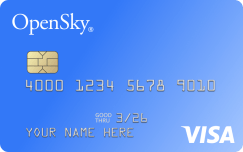Ads
The Brazilian stock market experienced a significant surge on Wednesday, November 7th, as the country’s primary indicator, the Brazilian Stock Exchange (Bolsa de Valores), reached a record high. This rise was fueled by investor focus on domestic economic conditions and several key events that took place throughout the day.
The Brazilian stock market, also known as the Ibovespa, closed with a 0.69% increase, surpassing the 119,000-point mark (119,249.35). This was a notable improvement compared to the previous day’s performance, which saw the Ibovespa rise by 0.23%, reaching 118.4 million points.
One of the most significant events that contributed to the stock market’s surge was the Senate Constitution and Justice Committee’s approval of Senator Eduardo Braga’s amendment to the tax reform bill. The Proposal to Amend the Constitution (PEC) No. 45/2019 received votes from twenty committee members in favor and faced opposition from only six. Notably, the president of the committee, Davi Alcolumbre, did not cast a vote according to protocol. This approval followed the manuscript’s submission on October 25, giving commission members two weeks to review it.
Furthermore, President Luiz Inácio Lula da Silva met with Senate and cabinet leaders on Tuesday night to discuss the details of the upcoming vote. This meeting highlighted the government’s strong commitment to reforming the economy, making it a top priority for the year. The PEC had already been approved in two rounds by the Chamber of Deputies in the first half of the year and is now headed for a vote in the full Senate on Thursday.
In addition to the tax reform developments, investors also responded to the release of the minutes from the most recent meeting of the Comitê de Política Monetária (Copom) of the Banco Central (BC). During this meeting, the Copom decided to reduce the basic interest rate, known as the Selic, by 0.5 percentage points, bringing it down to 12.25% per year. The Copom’s subsequent ata revealed concerns among monetary authorities regarding the government’s ability to meet its fiscal targets. The committee emphasized that a decrease in efforts towards structural reform and fiscal discipline, coupled with increased targeted credit and uncertainty surrounding the stabilization of public debt, could raise the economy’s neutral interest rate. This, in turn, could have detrimental effects on monetary policy effectiveness and the overall economy.
Riding on the positive momentum generated by retail-related stocks, the Ibovespa saw early gains on Wednesday. Magazine Luiza, in particular, experienced the most significant increase of the day, rising by almost 23%. This surge echoed the gains observed throughout the previous week.
The decline in the value of the Brazilian real played a part in the stock market’s performance. The real weakened against the US dollar due to better-than-expected news on interest rates. The Copom’s decision to reduce the Selic, coupled with the US Federal Reserve’s decision to maintain interest rates at their previous level, contributed to the lower value of the real. Although the US interest rate is currently at its highest level in 22 years, it has remained unchanged for the second consecutive meeting of the Federal Open Market Committee (FOMC).
Consequently, at the close of trading, the dollar was observed to be trading lower than its price earlier in the day on the Brazilian Stock Exchange. The US dollar experienced a 0.25% drop against the Brazilian real, reaching R$ 4.875. Moreover, overnight, the dollar faced a 0.16% decline, trading at its lowest level in over a month, R$ 4.887. These fluctuations resulted in a 3.29% loss for the currency in the month and a 7.64% decrease in its value so far this year.
Overall, the Brazilian stock market witnessed a significant surge due to various factors, including the approval of the tax reform amendment and the Copom’s decision to reduce the Selic. These events, coupled with positive retail-related stock performance, influenced investor sentiment and propelled the market to record highs. Additionally, the decline in the value of the real against the US dollar added to the market’s positive momentum.







